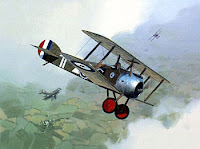
With 24 hours to go, there is still time to do some last minute cramming!
At this point, focus your revision on the areas you are still less sure about. You don't have enough time to do everything; you know the stuff you know; therefore use your time to add to your knowledge in those areas which still have a few gaps.
Also spend a little bit of time reading through the advice in the links at the top of the page on how to answer the questions. No doubt you will have spent a lot of time doing past exam questions this year so just remind yourself of how you should be answering Qa and Qb. Each question has different Assessment Objectives, so make sure you know what you should be looking for in each question.
Finally, some general tips for the exam...
1.
Plan your answers before you start writing. Take 10 minutes to carefully read and review each of the sources and produce a plan. This will ensure you don't rush into your answer. do this for each question.
2. If you allow 10 to plan each question, then the number of marks is proportional to the time you have (20 marks = 20 minutes). Keep an eye on the clock!
3.
Use the sources as the basis of your answer. This will help keep you focused. Remember to give examples from the sources to support your argument.
4. Develop
inferences (what does the source suggest to you?) and support these with evidence.
5. Always sum up your argument in a
conclusion which clearly addresses the question!
Good luck!








